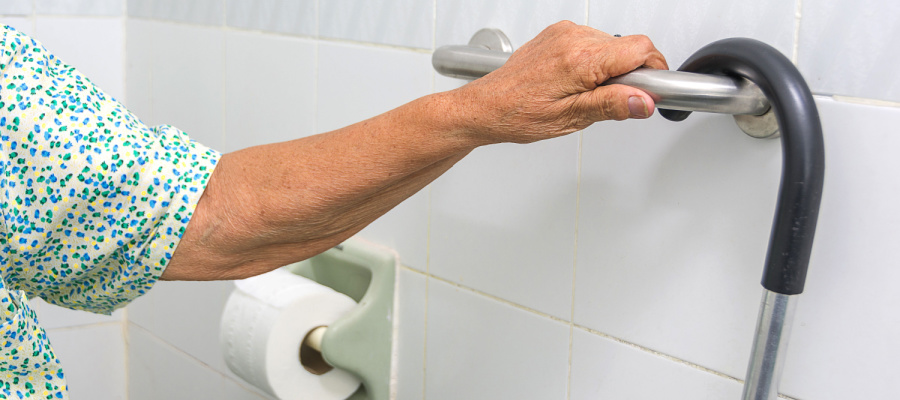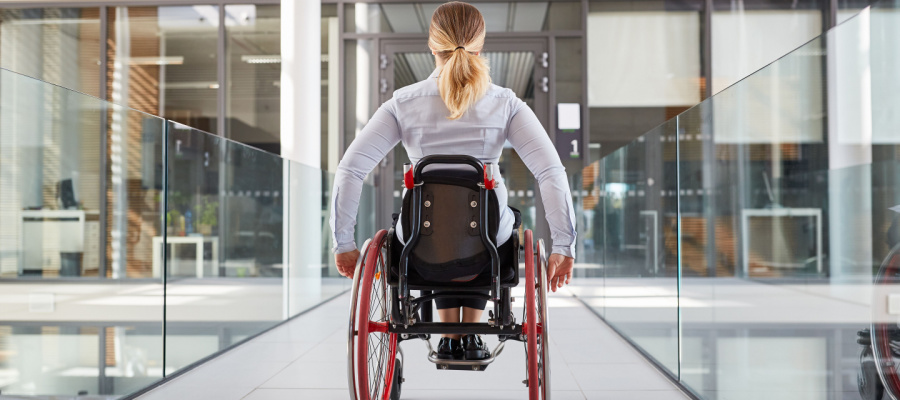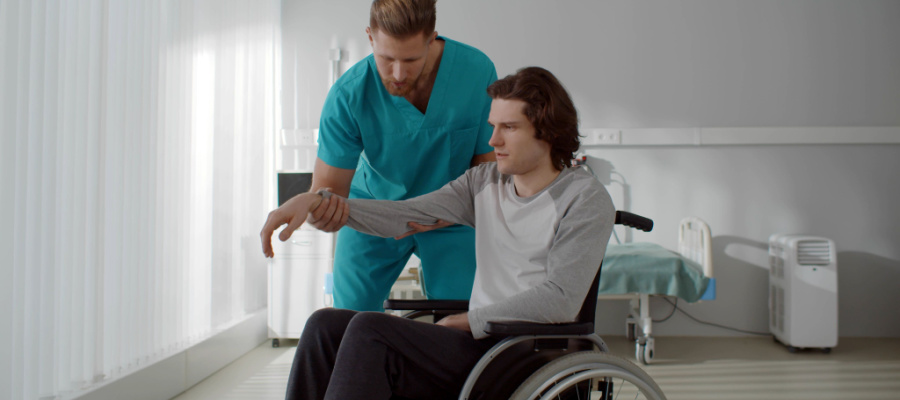Can Paralyzed People Go to the Bathroom?
For individuals living with paralysis, one of the most important questions they or their loved ones may have is about managing basic bodily functions, such as going to the bathroom. Whether caused by a spinal cord injury, stroke, neurological disorder, or other medical conditions, paralysis can disrupt the normal processes of the body, including urination and bowel movements.
At Devoted Helpers, an in-home care provider based in Sugar Land, Texas, we understand the challenges that paralysis can bring and are dedicated to offering compassionate care to help individuals maintain their dignity, independence, and well-being. In this article, we’ll explore how paralysis affects bathroom functions, the strategies available to assist those with paralysis, and how we can help ensure a comfortable and dignified experience.
Understanding Paralysis and Bathroom Function
Paralysis occurs when there is damage to the nervous system, specifically the spinal cord or brain, which disrupts the transmission of signals that control movement and bodily functions. The level and type of paralysis directly affect a person’s ability to control their bladder and bowels.
- Spinal cord injury (SCI) – Depending on the level of the injury, people with paralysis may experience complete or partial loss of control over their bladder and bowels. Injuries at C1-C4 (high cervical) can lead to quadriplegia, affecting all four limbs and the ability to control bodily functions. Injuries lower down, like those at T6-T12, may affect the legs and abdomen, while paraplegia (lower body paralysis) may impact bowel and bladder control.
- Neurological conditions – Diseases like multiple sclerosis (MS) or amyotrophic lateral sclerosis (ALS) can cause progressive paralysis, affecting a person’s ability to control bathroom functions over time.
Bladder Control – Can Paralyzed People Go to the Bathroom?
For many individuals with paralysis, the bladder does not function normally due to the loss of control over the muscles and nerves that regulate urination. There are strategies and treatments available to help manage bladder function and enable individuals to maintain hygiene and dignity.
a. Types of Bladder Dysfunction in Paralysis
People with paralysis may experience several types of bladder dysfunction, including…
- Neurogenic bladder – This condition occurs when nerve damage disrupts the normal signals between the brain and the bladder, making it difficult to feel the need to urinate or control when to do so.
- Overactive bladder – The bladder may contract involuntarily, causing frequent urges to urinate and potential incontinence.
- Underactive bladder – The bladder may fail to contract adequately, making it difficult to empty the bladder fully, leading to urinary retention.
b. Strategies for Managing Bladder Function
Although individuals with paralysis may not be able to urinate on their own in the traditional sense, there are various methods to help manage bladder function and prevent complications like urinary tract infections (UTIs).
- Intermittent catheterization – This is a common method where a person uses a catheter to empty the bladder at regular intervals. This can be done independently or with assistance from a caregiver.
- Indwelling catheter – In some cases, a person may have a catheter that remains in place to drain the bladder continuously. While this option is convenient, it also comes with a higher risk of infection.
- Bladder training – Some individuals can benefit from techniques to train their bladder to hold urine for longer periods or empty at scheduled times.
- Medications – Medications may be prescribed to manage symptoms like an overactive bladder or to help with bladder retention.
At Devoted Helpers, we assist individuals with catheterization and bladder training while ensuring comfort and maintaining hygiene.
Bowel Control – Can Paralyzed People Go to the Bathroom?
Similar to bladder control, the ability to manage bowel movements can be significantly impacted by paralysis. Bowel dysfunction, or neurogenic bowel, can affect the muscles involved in defecation, making it difficult to control when and how bowel movements occur.
a. Bowel Dysfunction in Paralysis
Paralysis may cause a loss of sensation and muscle control, leading to the following…
- Constipation – Reduced ability to pass stool regularly or in a timely manner.
- Incontinence – Inability to control bowel movements, leading to involuntary release of stool.
- Incomplete emptying – Difficulty fully evacuating the bowels, which can result in discomfort or leakage.
b. Strategies for Managing Bowel Function
There are several methods and techniques available to help individuals with paralysis maintain bowel control and hygiene…
- Bowel programs – A structured bowel program may include dietary changes, hydration, and stimulants to promote regular bowel movements. Regular, scheduled bowel routines can help individuals prevent accidents and maintain comfort.
- Manual removal – For individuals with severe paralysis, caregivers may assist with manual removal (using fingers or a special tool) to ensure that the bowel is fully emptied.
- Suppositories and enemas – These can be used to stimulate bowel movements in individuals who have difficulty passing stool.
- Abdominal massage – Some individuals benefit from abdominal massage or specific physical exercises to help move stool through the intestines.
How Devoted Helpers Can Assist with Bathroom Needs
At Devoted Helpers, we provide personal care services that are designed to help individuals with paralysis manage bathroom needs while maintaining dignity and comfort. Our caregivers are highly trained to assist with…
- Bladder management – Assisting with intermittent catheterization or ensuring proper care for indwelling catheters, while maintaining hygiene and preventing infection.
- Bowel management – Helping with scheduled bowel programs, manual removal if necessary, and ensuring comfort during bowel movements.
- Personal hygiene – Providing assistance with bathing, grooming, and clothing changes to ensure cleanliness and dignity.
- Emotional support – Many individuals with paralysis may experience emotional distress or frustration when dealing with bathroom issues. Our caregivers provide compassionate emotional support to help alleviate feelings of isolation and maintain mental well-being.
We understand that bathroom care is an essential part of daily living, and our caregivers work to make these tasks as comfortable and efficient as possible for individuals with paralysis.


